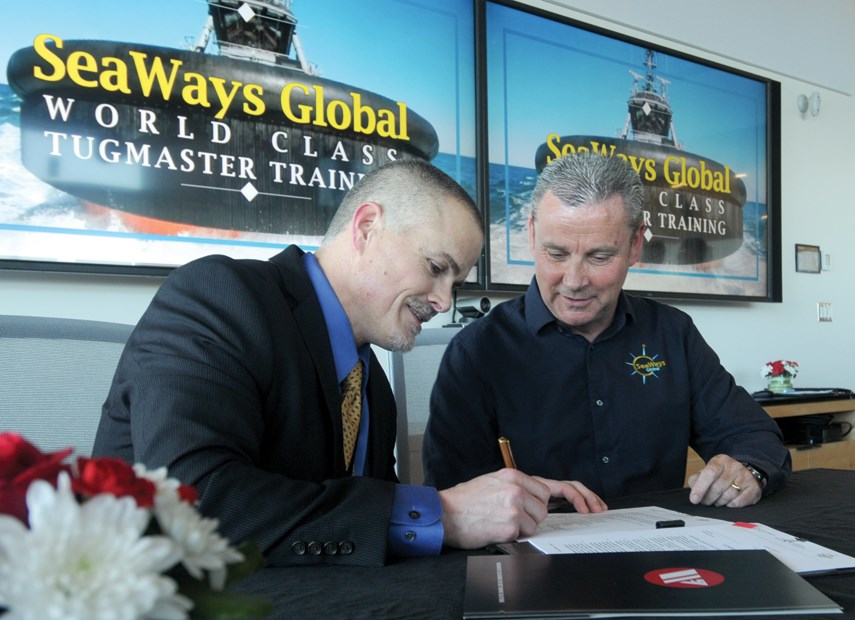Captains of that tugboats that help large ships – including oil tankers – dock and manoeuvre in Vancouver Harbour will be getting a new state-of-the-art training program, Seaspan has announced.
Seaspan Marine – the transportation arm of the North Vancouver-based marine company – announced Friday it has signed a five-year contract with SeaWays Global to provide marine certified training at its North Vancouver headquarters.
Under the deal, Seaspan will spend $1 million on specialized simulation equipment used in the training. Seaspan has also signed a contract with SeaWays Global, a U.K.-based company, to provide $5.5 million worth of training for the company’s tugboat captains over the next five years.
The training program is the only marine-certified training recognized for tugboat masters.
Seaspan will be the only company in North America to offer it, said Bart Reynolds, president of Seaspan Marine.
The training for captains of azimuth-propulsion (ASD) tugboats includes learning on specialized 360-degree simulators and on the water.
The highly maneouvrable ASD tugboats are the tugs that help to both dock and escort large vessels in and out of marine terminals in Vancouver Harbour.
The tugs currently escort freighters, container ships and oil tankers in and out of Burrard Inlet.
The tugs would also escort additional tankers exporting diluted bitumen from an expanded Kinder Morgan pipeline if that project moves ahead.
Reynolds said having access to the advanced training system would be an advantage in that scenario, although he added Seaspan does not have a contract with Kinder Morgan for escorting additional tanker traffic currently.
Seaspan has had an exceptional safety record, Reynolds told dignitaries at the announcement Friday afternoon. But he added, “We live in a location and a time where exceptional is not enough.”
Seaspan will own the specialized console used for the training, which will allow it to be used for customized training, including training for specific customers, oil spill response scenarios and even re-enactments of accidents, he said.
The company currently has about 300 mariners working for its marine division. About 120 of those people are tugboat masters. But the vast majority of them will likely retire in the next five years, said Reynolds. The new training system will be used to train new captains as well as existing masters.
So far, 12 captains from Seaspan have travelled to the U.K. to complete the training at SeaWays.
Fred Unger, one of those tugboat captains, said he’d never driven an ASD tug before, but the training allowed him to feel fully confident when he did so for the first time.
Frank Butzelaar, CEO of Seaspan Marine Transportation, said training deal is “a big investment for us” but added the company has “never been shy of big investments.”
He said the training system will “set a new benchmark in our industry.”



